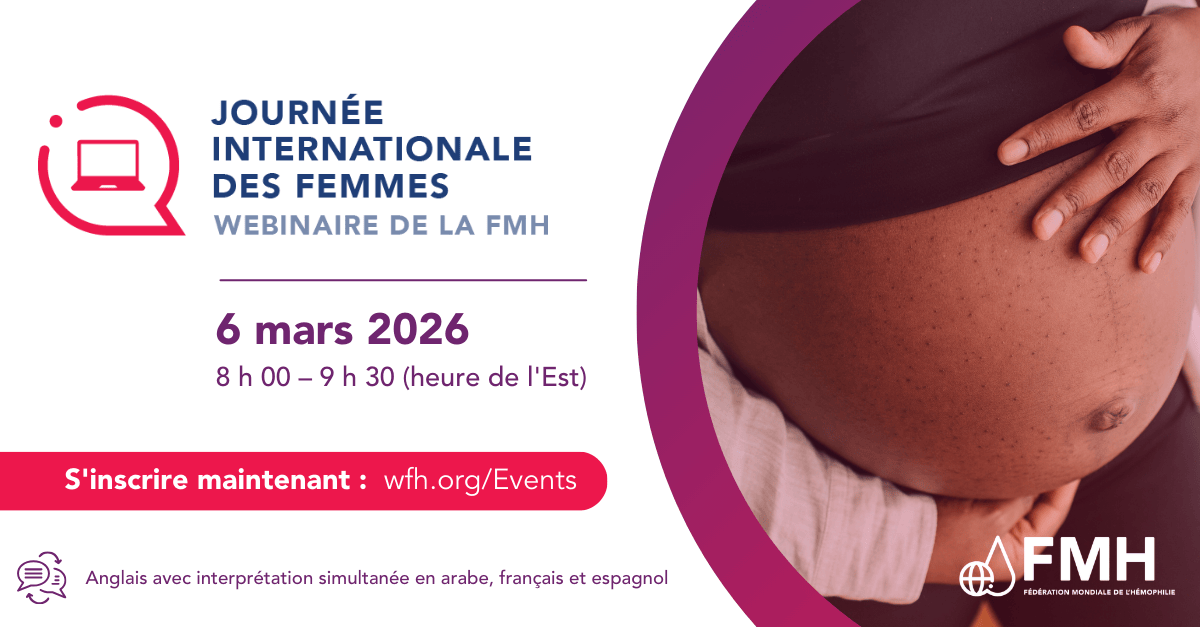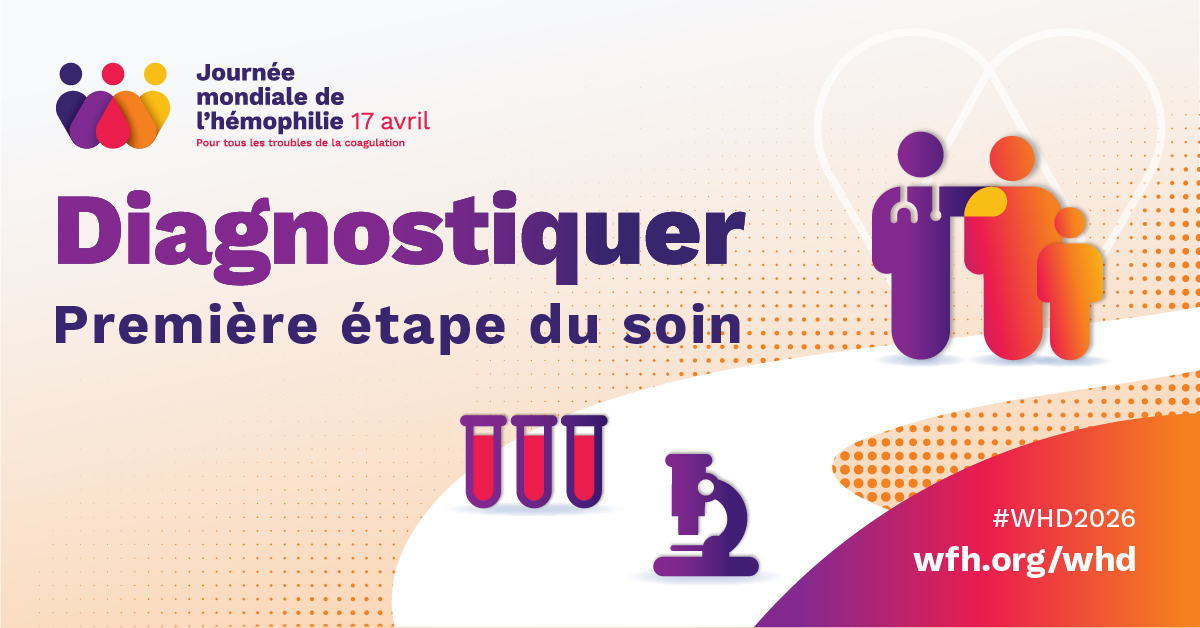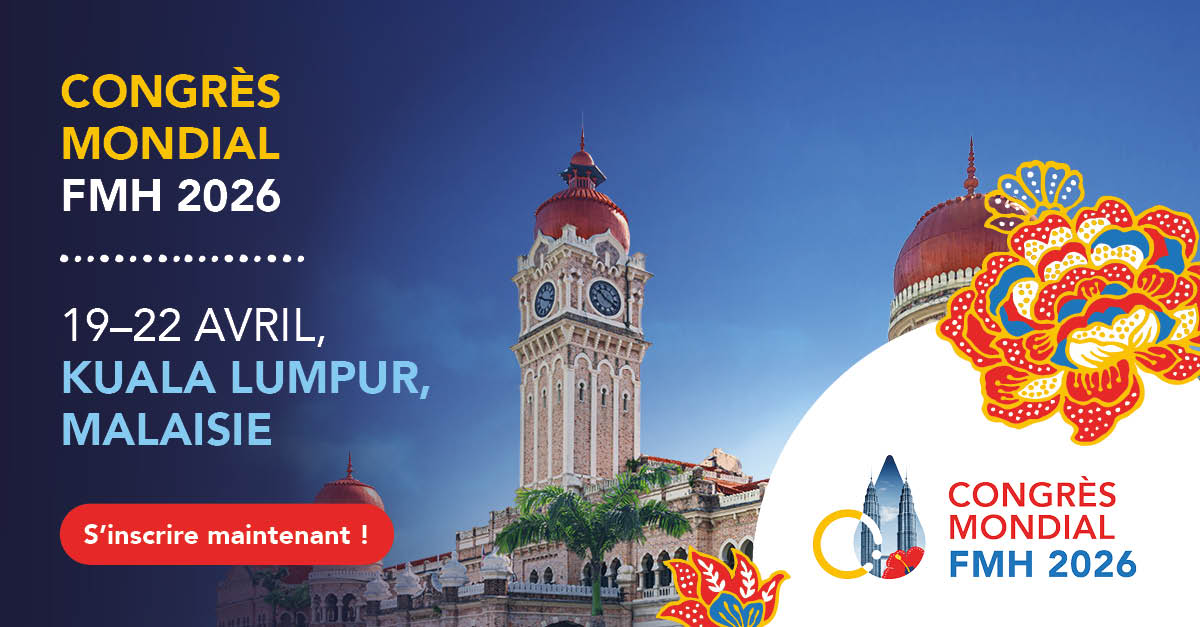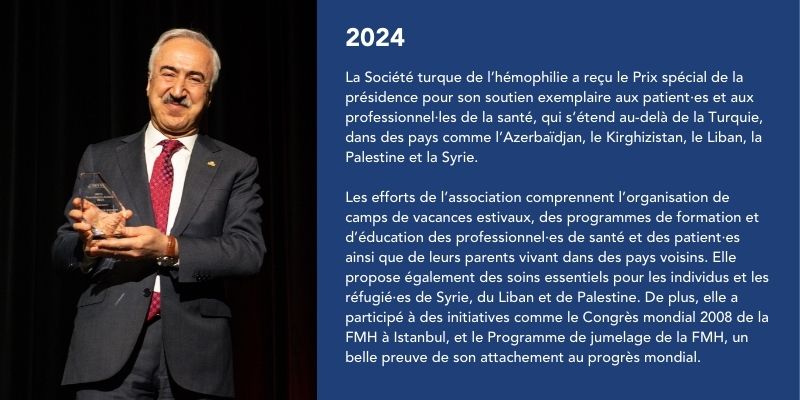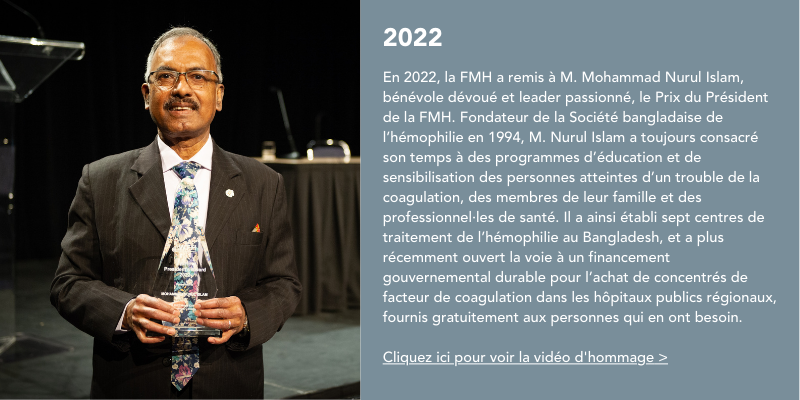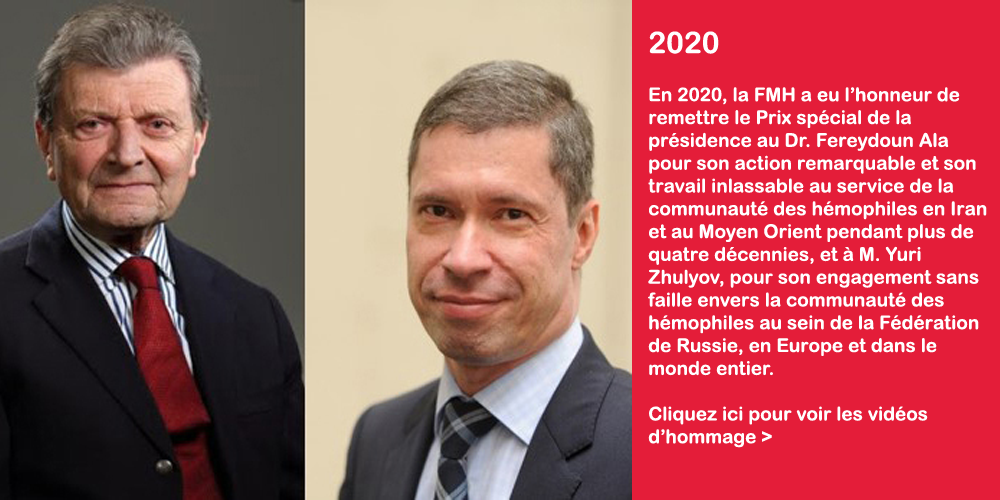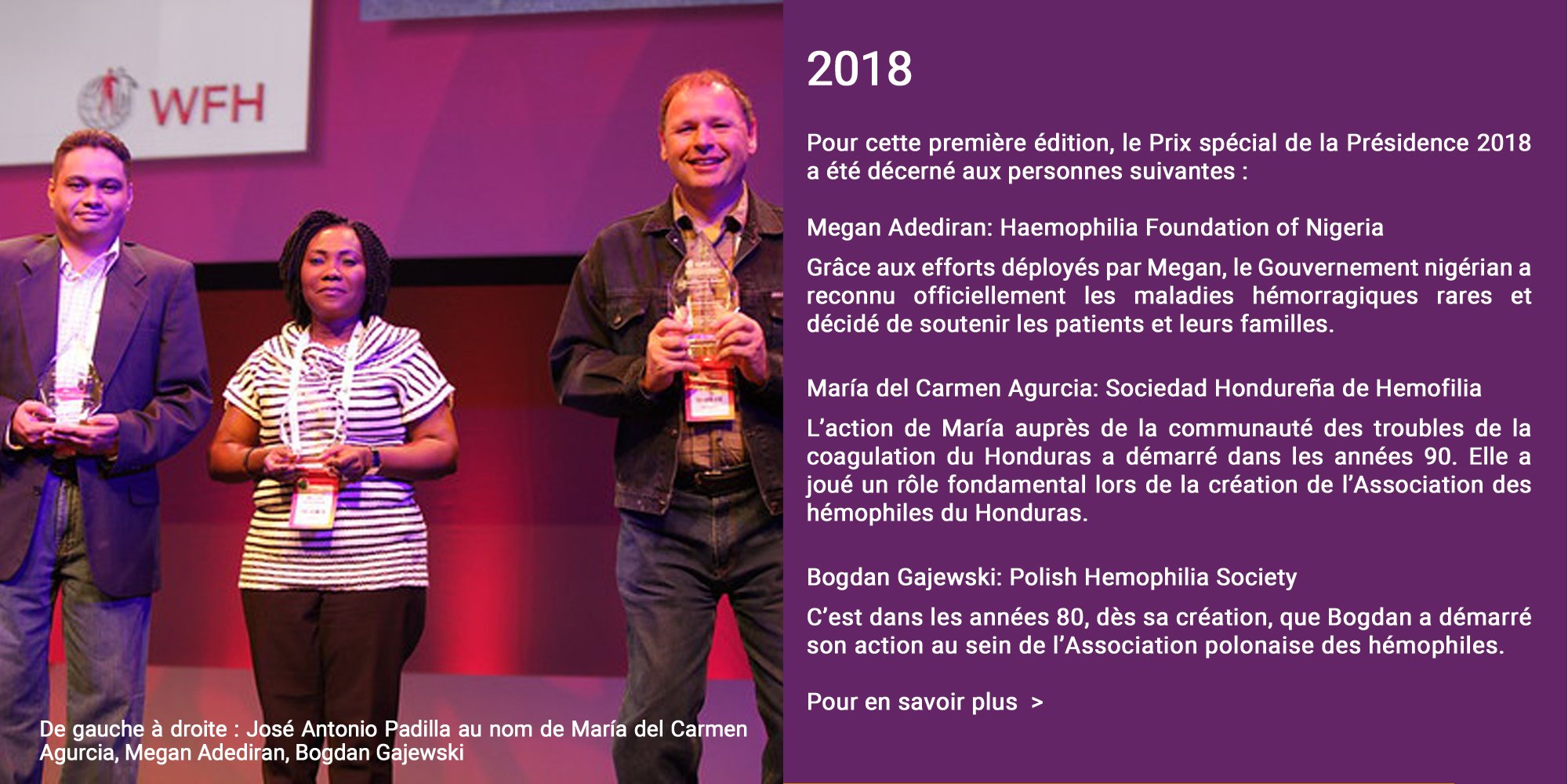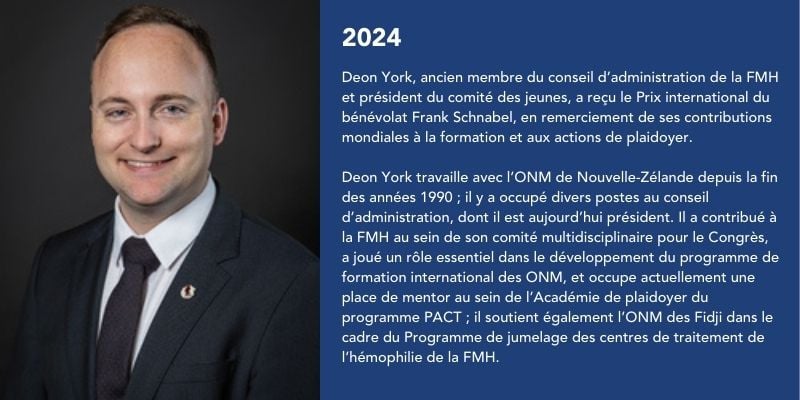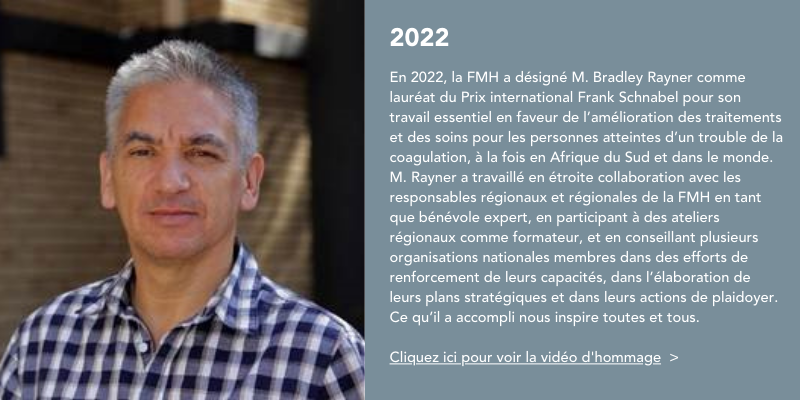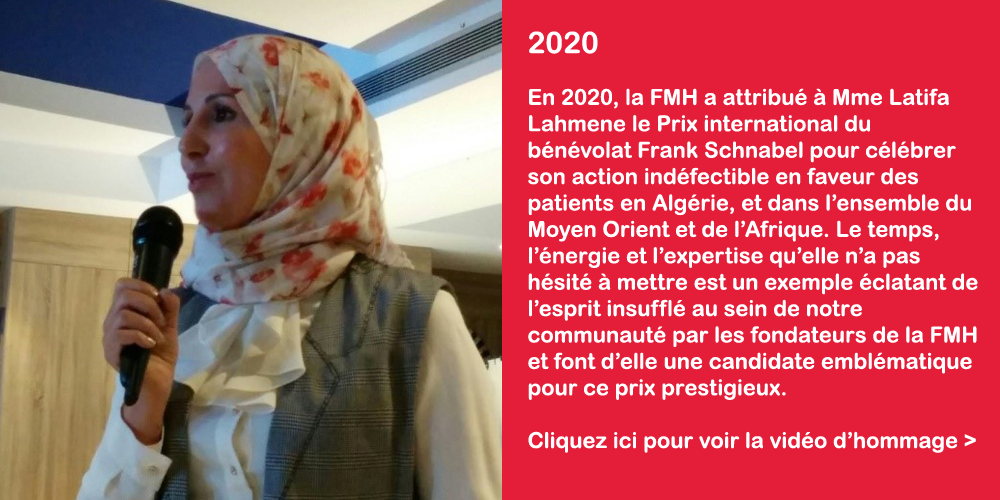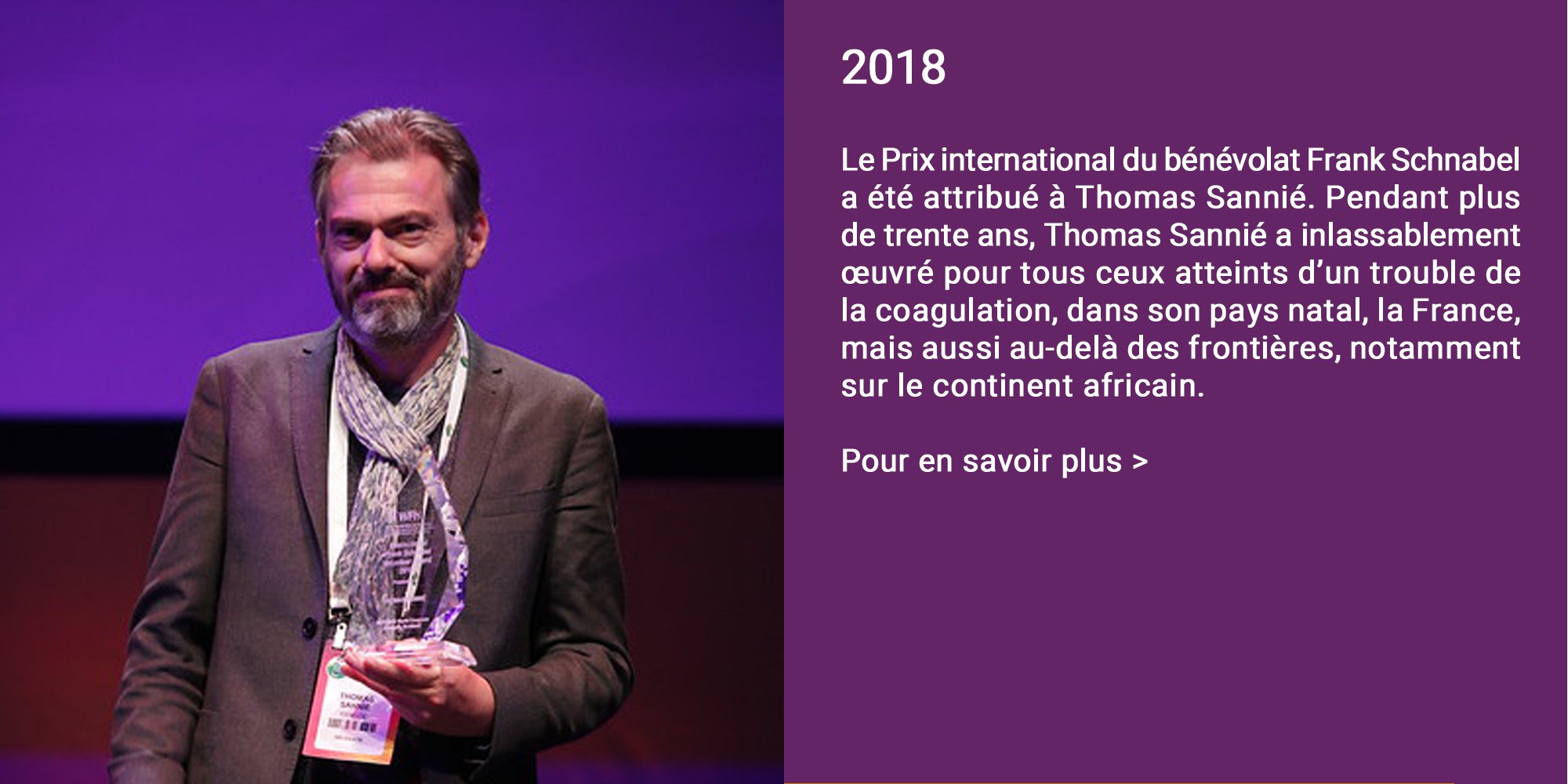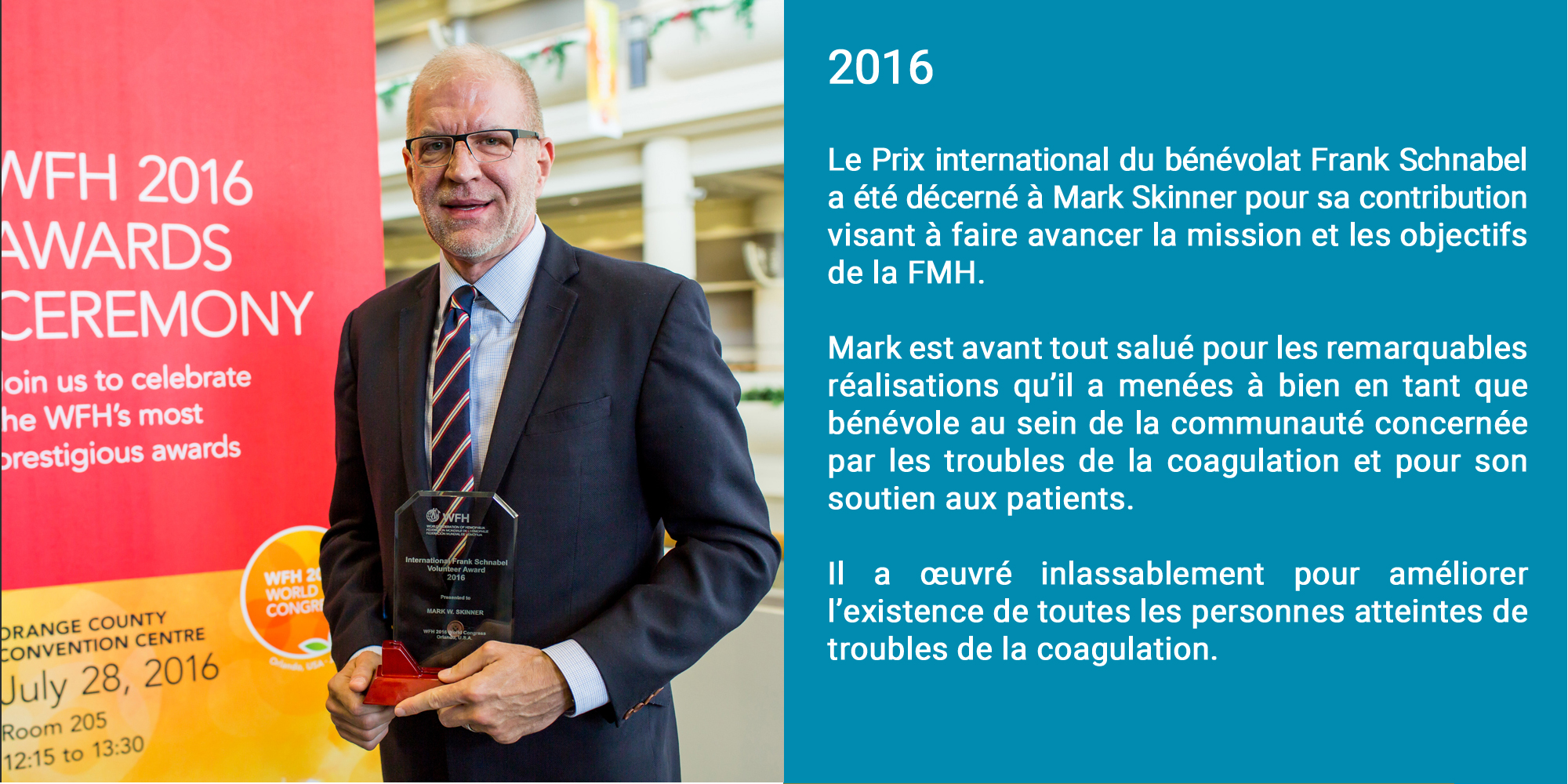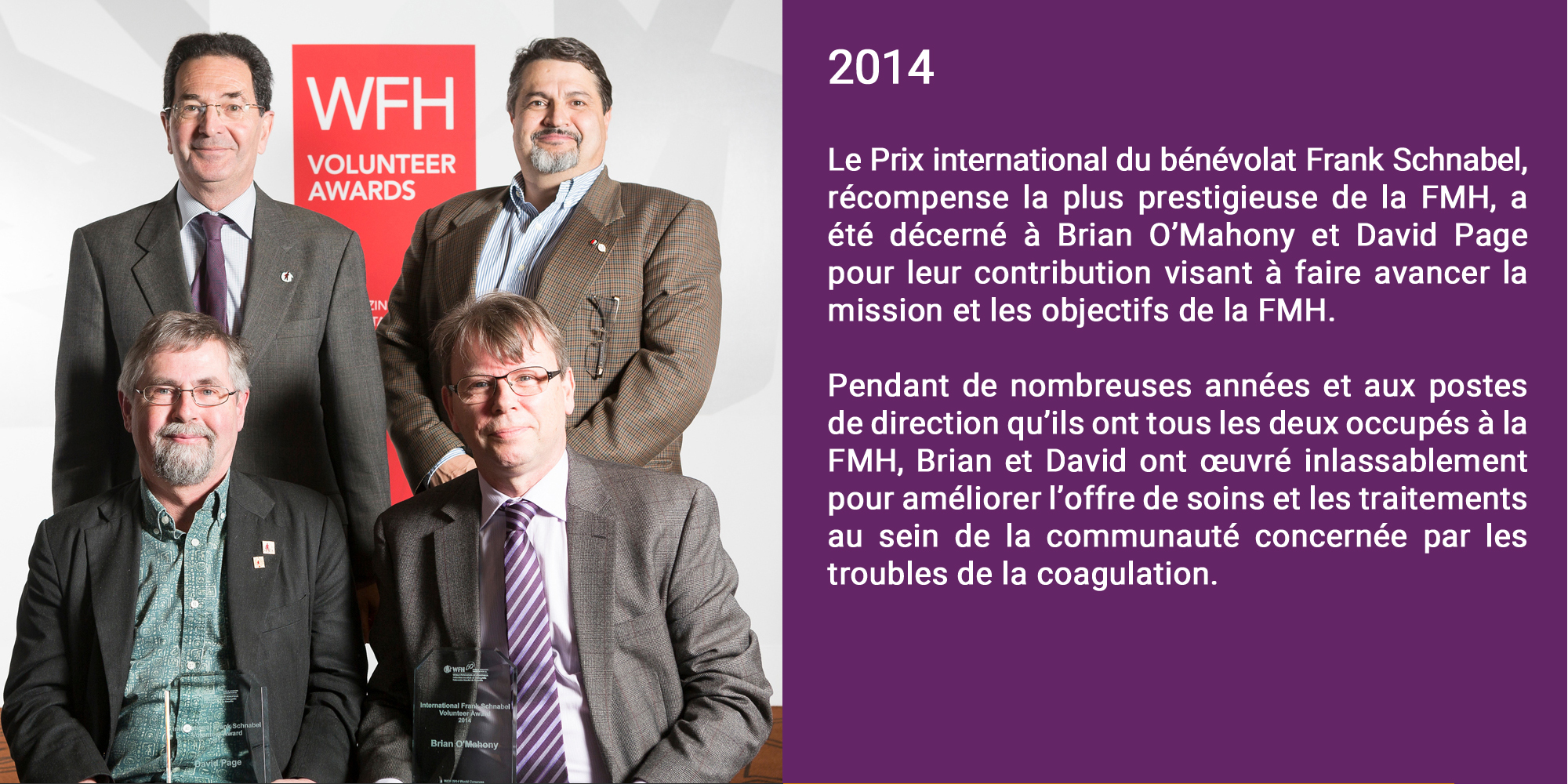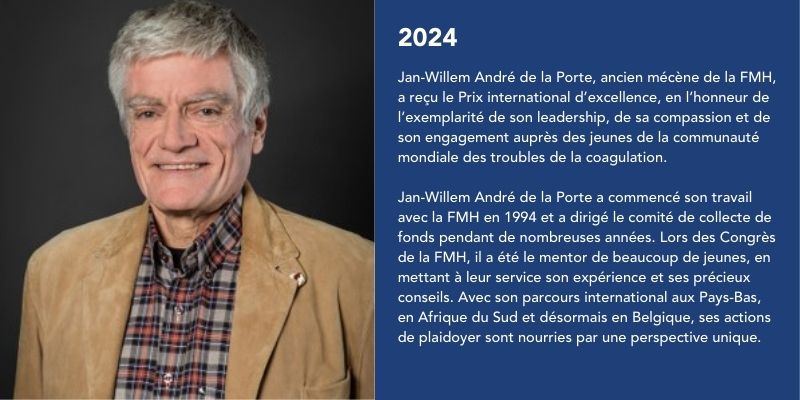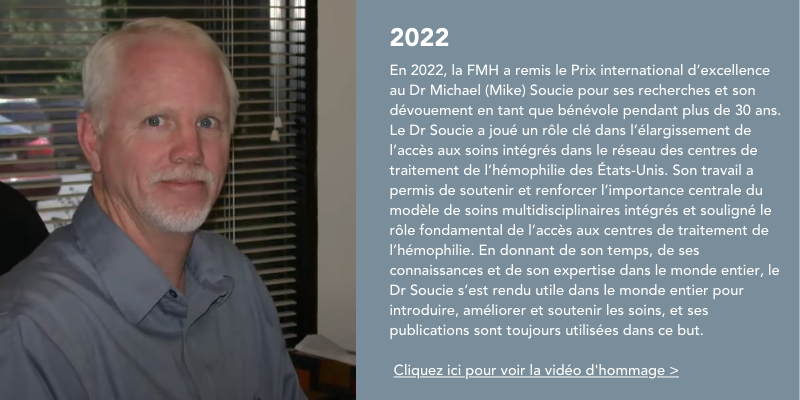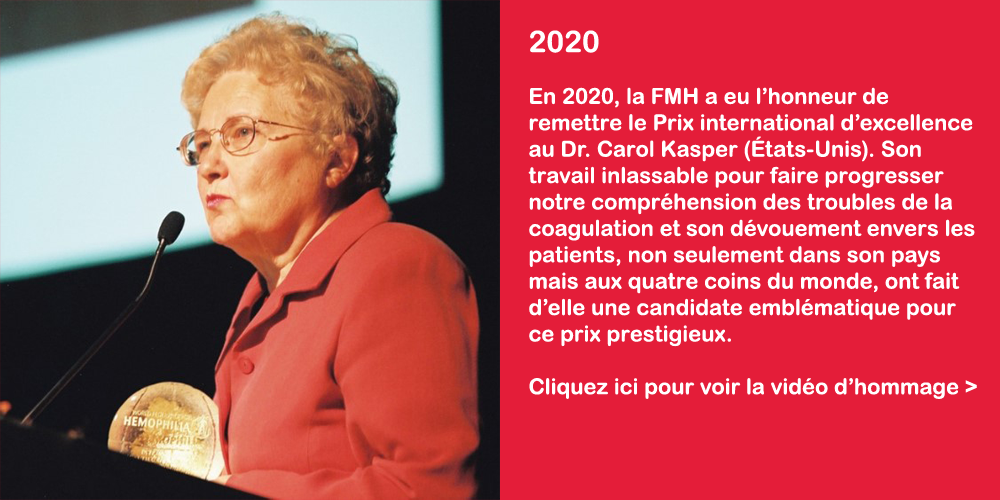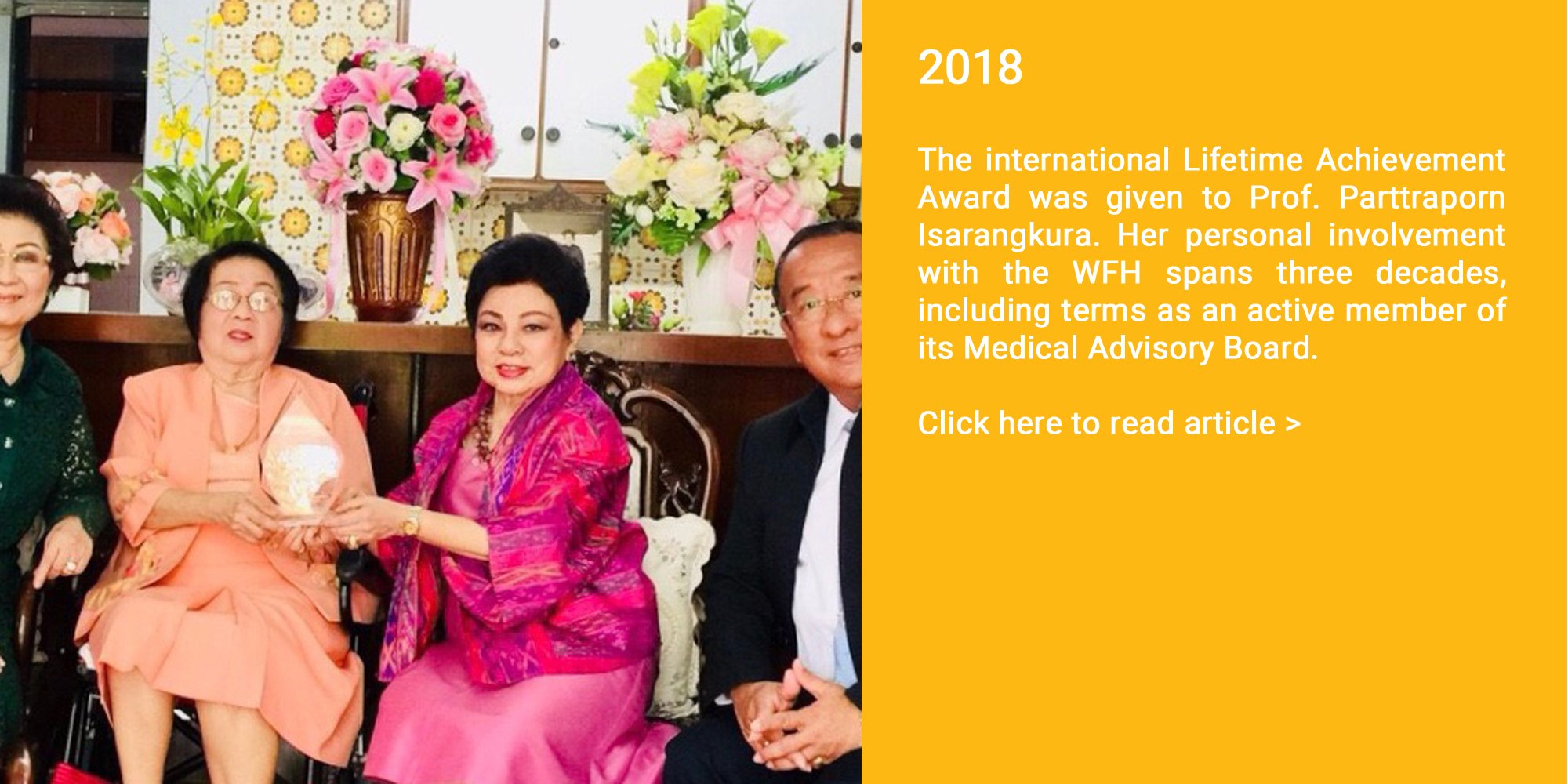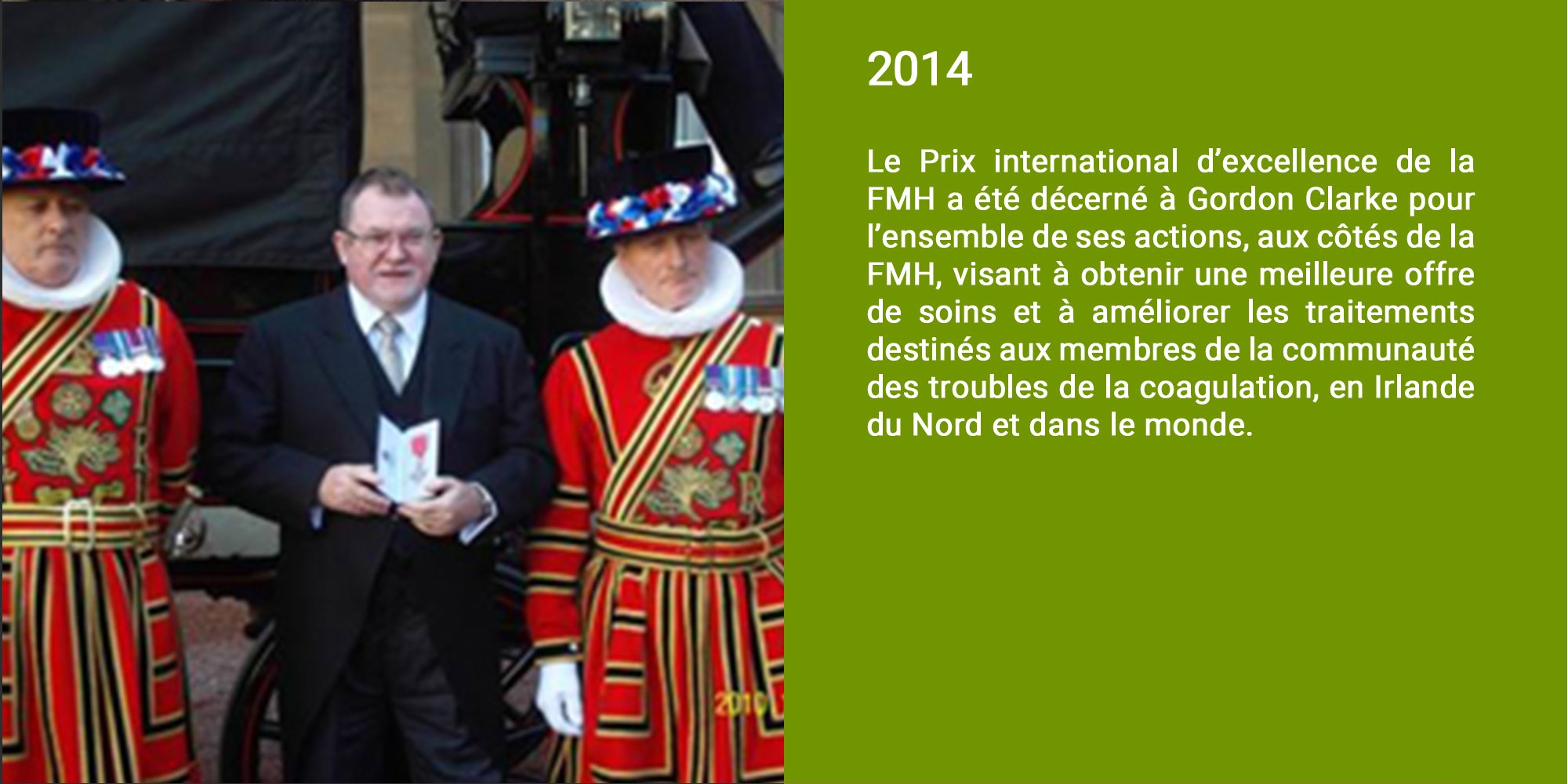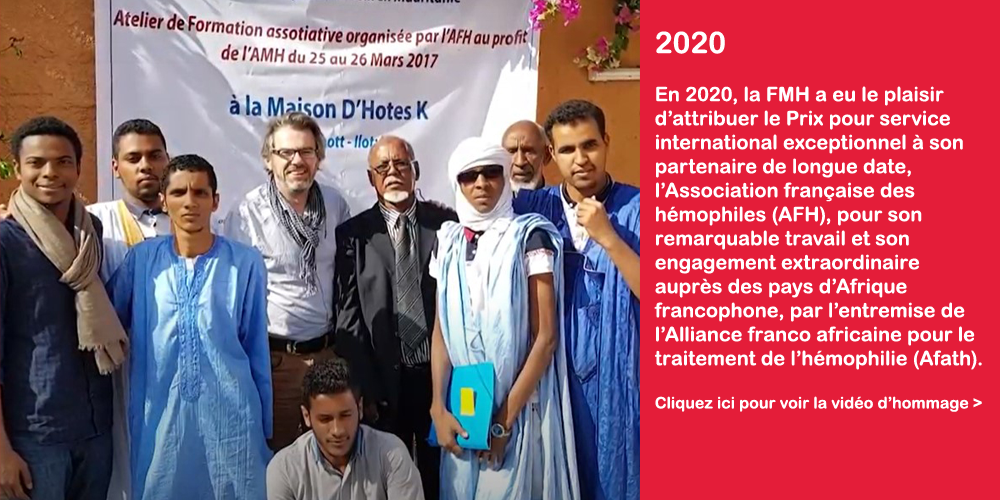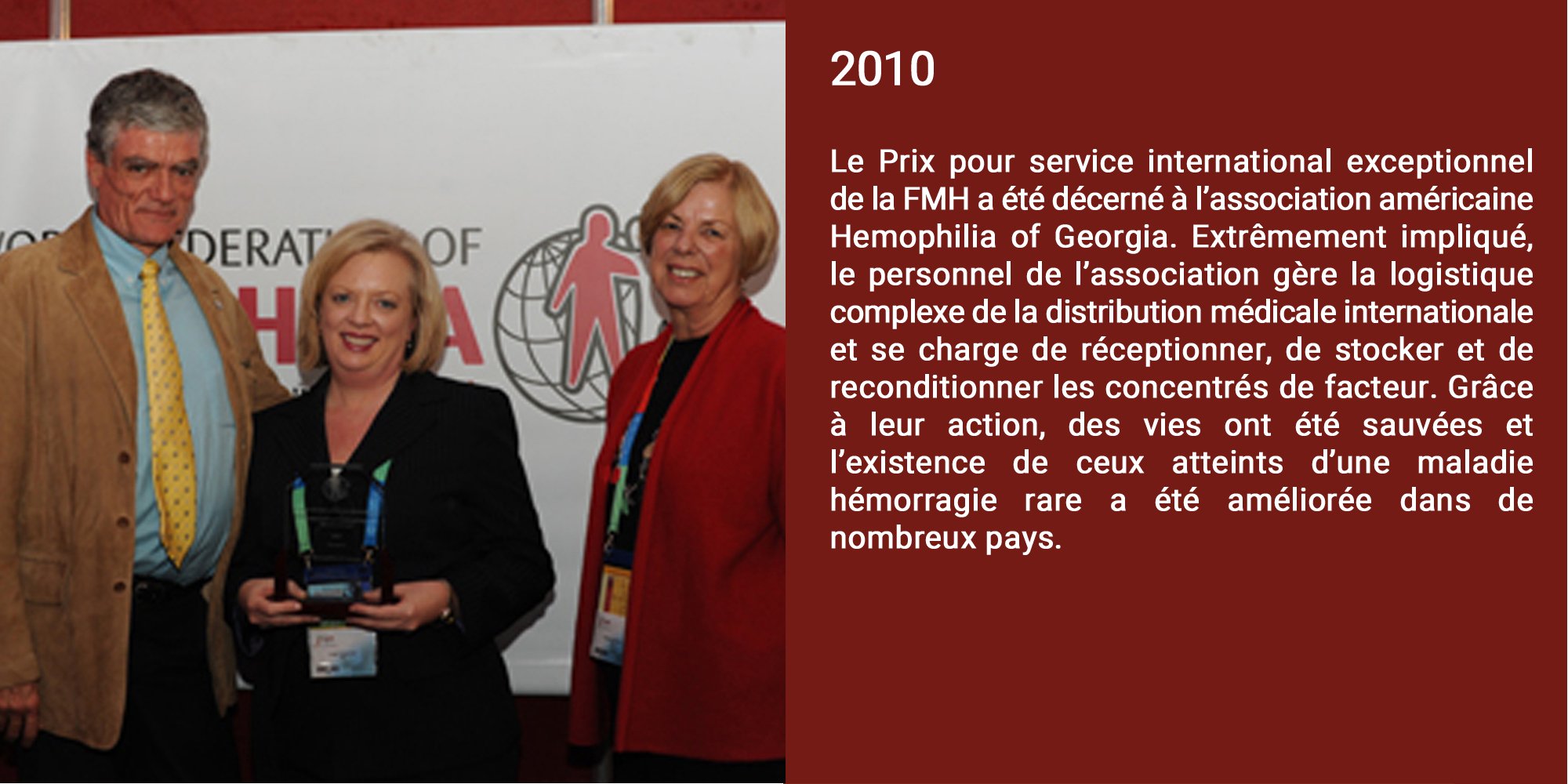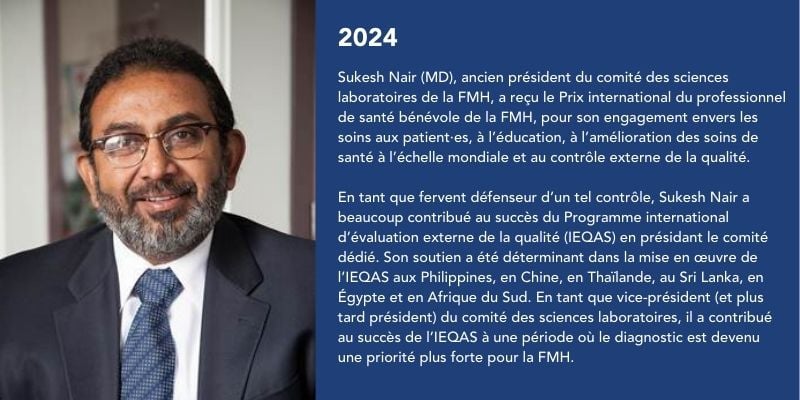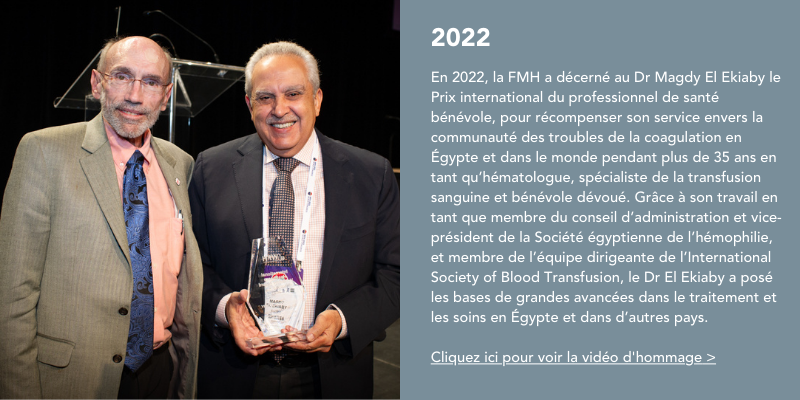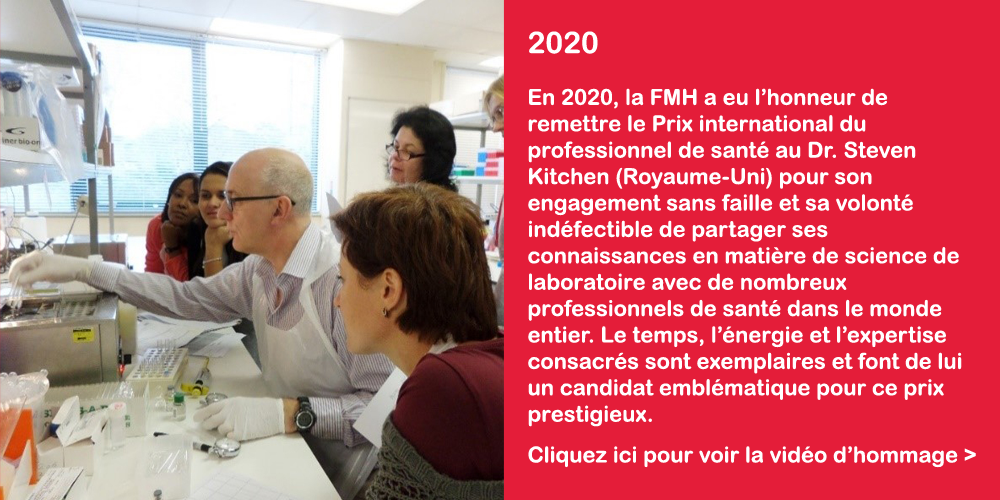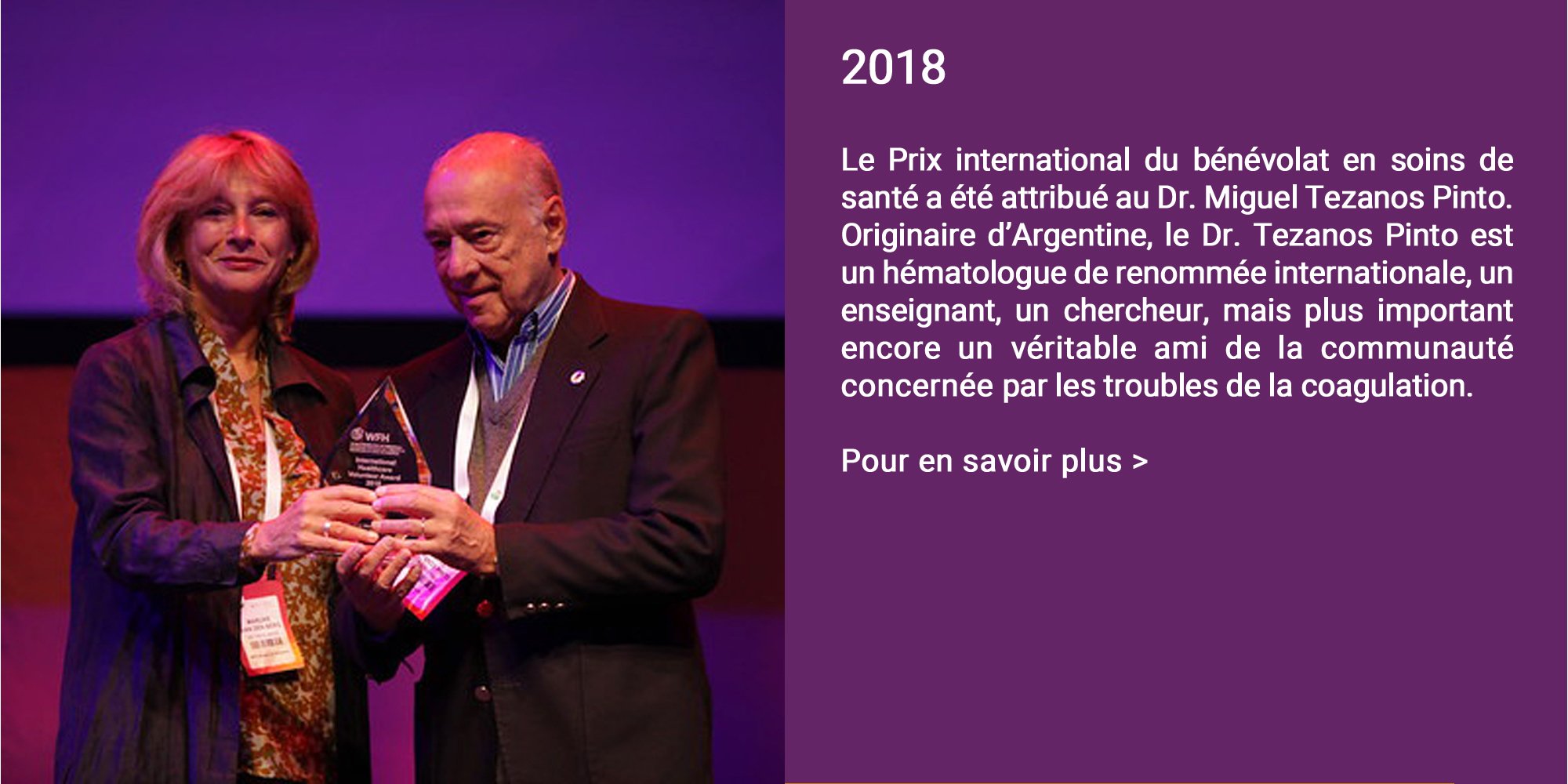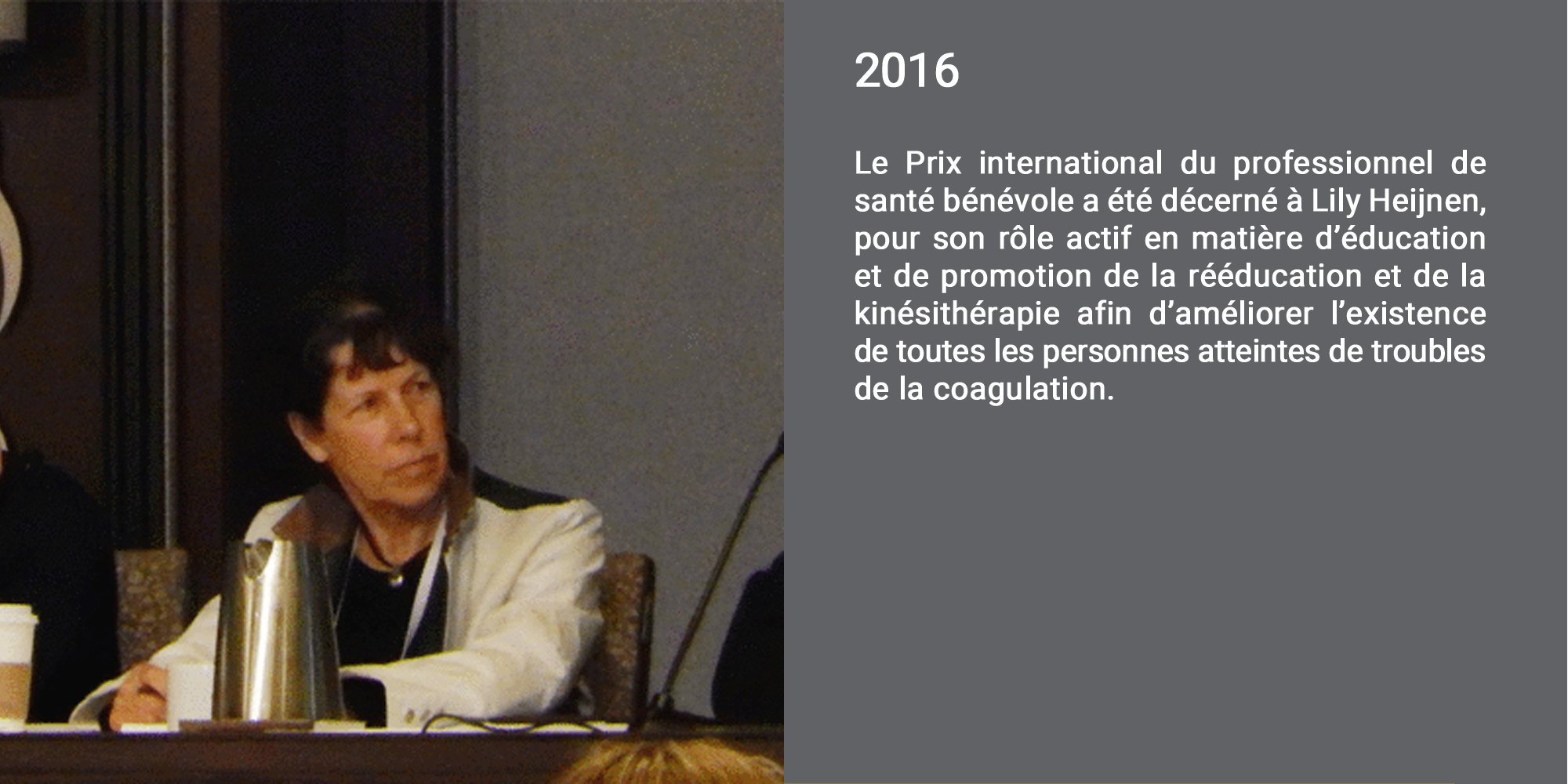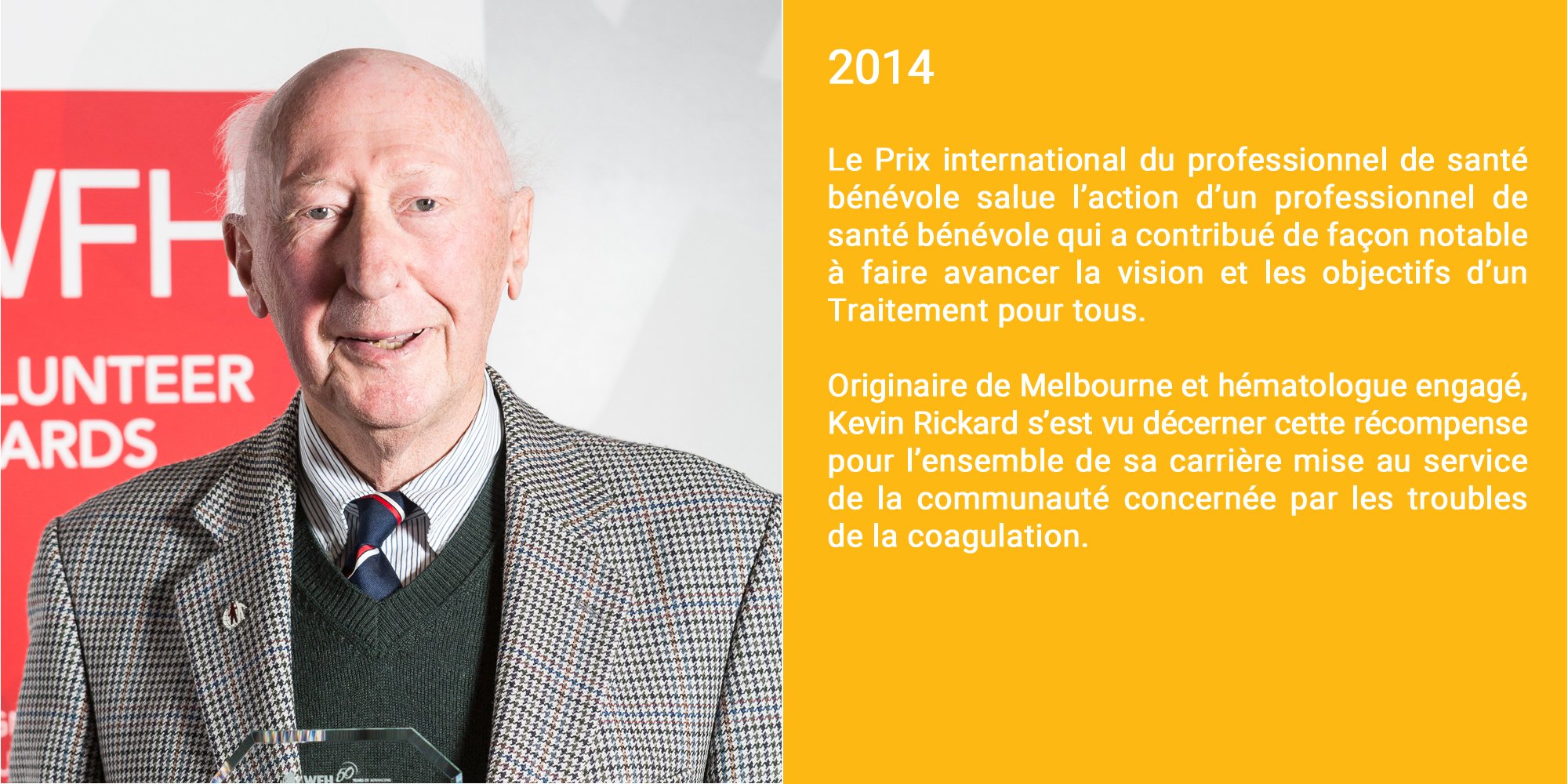Créé en 2018, le Prix du président de la FMH récompense une personne ou une organisation ayant œuvré pour la communauté locale et ayant eu un impact notable sur la communauté des troubles de la coagulation de son pays. Ce prix est décerné tous les deux ans lors du Congrès mondial.
Nous vous invitons à proposer la candidature d’une personne (âgée de plus de 18 ans) ou d’une organisation qui, depuis au moins cinq ans, joue un rôle actif au sein de la communauté locale des personnes atteintes de troubles de la coagulation, qui a eu un impact à l’échelle nationale et qui a contribué de manière significative à la réalisation de la mission et des objectifs de la FMH.
À partir de 2024, une nouvelle sous-catégorie a été ajoutée au Prix du président afin de récompenser les personnes et les organisations qui œuvrent pour accroître la reconnaissance, la visibilité et améliorer le diagnostic et/ou l’accès aux soins pour les femmes et les filles atteintes de troubles de la coagulation.
Les personnes qui se présentent aux élections du conseil d’administration de 2026 et le personnel de la FMH ne sont pas éligibles :
- Une personne ou une institution, comme le dirigeant d’une ONM, d’un comité régional ou d’un comité de jeunes, un bénévole local associatif ou tout dirigeant d’un autre groupe, œuvrant au sein de sa communauté locale des troubles de la coagulation et/ou de son pays.
- Un professionnel de santé ayant un impact au sein de sa communauté locale des troubles de la coagulation et/ou de son pays.
- Un défenseur des droits des femmes et filles atteintes d’un trouble de la coagulation : toute personne/institution ayant un impact sur l’amélioration de la prise en charge des femmes et filles atteintes de troubles de la coagulation.
Le candidat doit remplir les conditions suivantes.
Critères pour les individus/organisations ou les professionnelles de la santé
- Avoir occupé des fonctions dirigeantes pendant au moins 5 ans au sein de la communauté nationale concernée par les troubles de la coagulation
- Être en lien avec l’organisation nationale membre de la FMH
- Avoir mené à bien un projet/une initiative ayant eu un impact au sein de la communauté à l’échelle nationale
- Les lauréats seront sélectionnés parmi les finalistes choisis à partir de toutes les nominations reçues et peuvent être soit le dirigeant d’une ONM, le dirigeant d’un comité régional, le dirigeant d’un comité de jeunes, un bénévole local associatif ou médical, et/ou un comité régional/une ONM/un groupe de jeunes, ou toute autre organisation.
Ne peuvent postuler :
- Les membres des Comités ou du Conseil d’administration de la FMH et de la FMH USA en cours de mandat, les candidats aux élections du Conseil d’administration de 2024
- Toute personne/institution sans lien avec l’ONM locale de la FMH
- Les personnes qui se présentent aux élections du conseil d’administration de 2026 et le personnel de la FMH ne sont pas éligibles.
Prix spécial de la Présidence : Catégorie Femmes et filles atteintes d’un trouble de la coagulation
Cette catégorie du Prix spécial de la Présidence récompense une personne ou une institution qui a fait preuve d’un dévouement et d’un engagement constants pour faire reconnaître, diagnostiquer et accéder à une prise en charge équitable les femmes et filles atteintes de troubles de la coagulation. La personne ou l’organisation nommée doit défendre la cause des patientes atteintes de troubles de la coagulation et avoir contribué de manière significative à modifier les perceptions à l’égard des femmes et filles atteints de troubles de la coagulation. Ses efforts doivent avoir considérablement accru la reconnaissance et la visibilité des troubles de la coagulation chez les femmes et les jeunes filles dans l’ensemble de la communauté des troubles de la coagulation.
Conditions
- La personne ou l’institution nommée est une personne ou une organisation qui a participé à des programmes ou à des initiatives visant à améliorer la capacité des ONM et des professionnels de santé à diagnostiquer et à prendre en charge les femmes et filles atteintes de troubles de la coagulation.
- La personne ou l’institution nommée est une personne ou une organisation qui a plaidé en faveur des femmes et filles atteintes de troubles de la coagulation et qui a contribué de manière significative à changer les préjugés selon lesquels les femmes sont uniquement porteuses de la maladie.
- La personne ou l’institution nommée est une personne ou une organisation qui s’est engagée afin de favoriser la collaboration entre les différentes parties prenantes (ONM, professionnels de santé, institutions gouvernementales et société civile) et parvenir à un accès équitable au diagnostic et à une prise en charge des femmes et filles atteintes de troubles de la coagulation.
- La personne ou l’institution nommée est une personne ou une organisation qui a démontré son engagement afin de sensibiliser sa communauté aux problématiques auxquelles doivent faire face les femmes et filles atteintes de troubles de la coagulation.
Ne sont pas éligibles au Prix spécial de la Présidence
- Tout dirigeant bénévole siégeant dans des Conseils ou des Comités de la FMH (tels que le Conseil d’administration de la FMH et de la FMH USA et le Conseil consultatif médical de la FMH).
- Toute personne ou organisation non associée à une ONM de la FMH
- Les personnes qui se présentent aux élections du conseil d’administration de 2026 et le personnel de la FMH ne sont pas éligibles.
